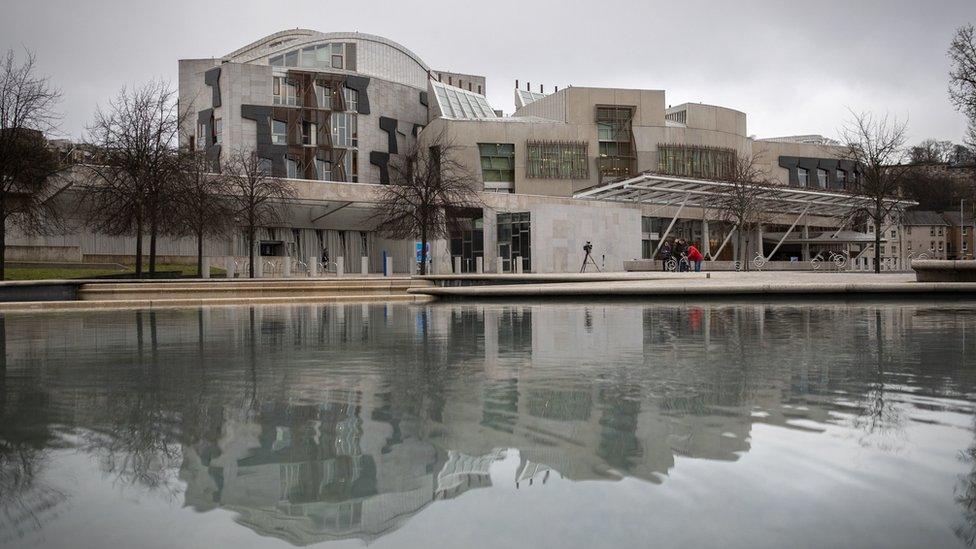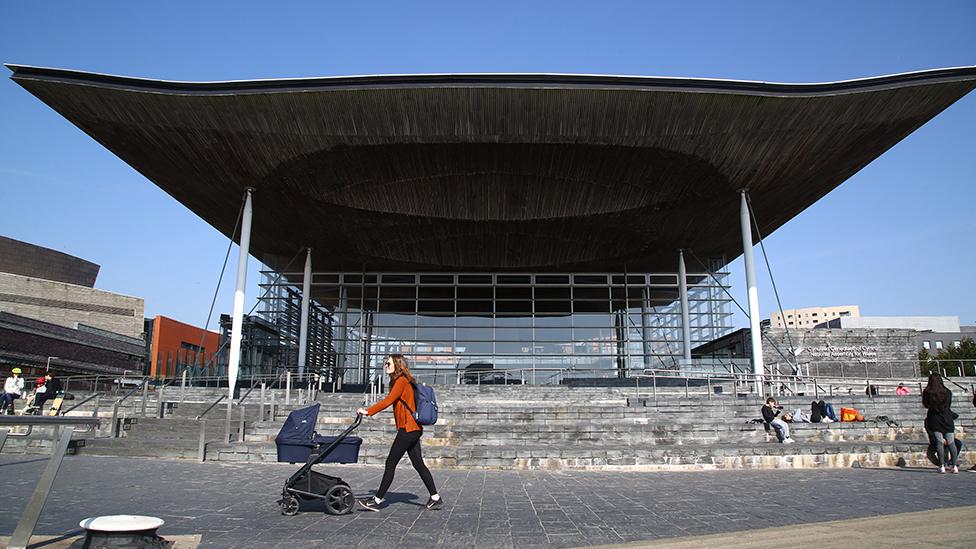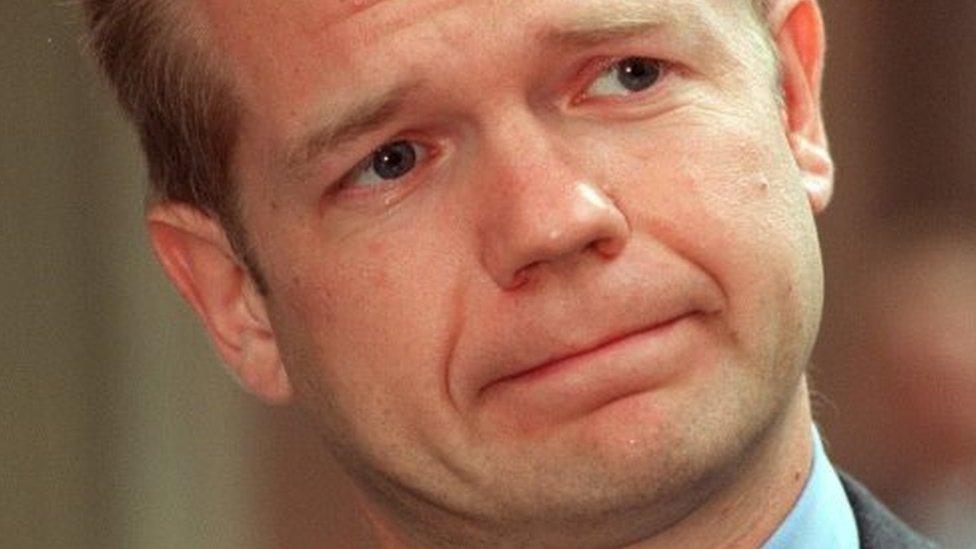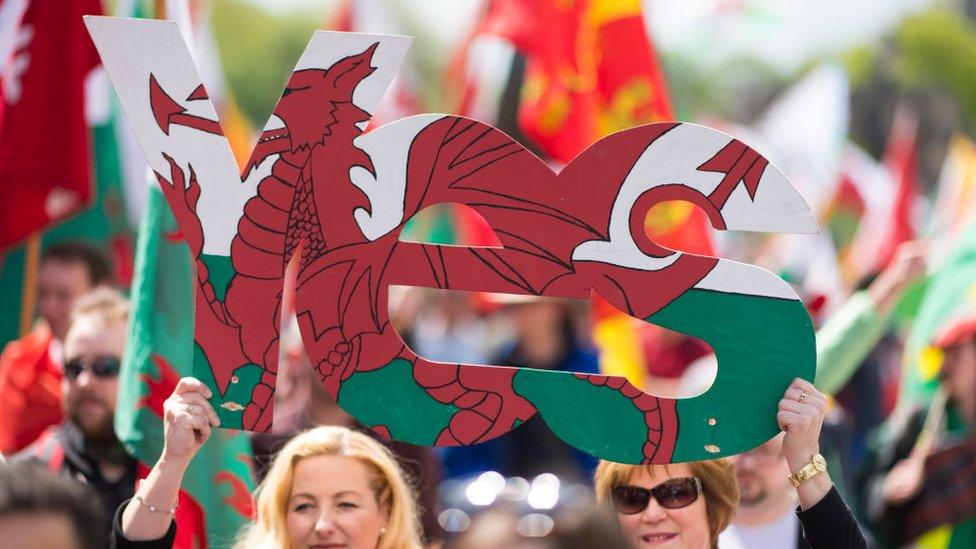Princess Diana death led to calls to delay Scotland, Wales devolution votes
- Published

Tony Blair called Diana the "people's princess" after her death in a car crash in Paris on 31 August 1997
Labour Prime Minister Tony Blair was asked by the Conservatives to delay devolution referendums for Scotland and Wales after the death in 1997 of Princess Diana, archives have revealed.
Then Tory leader William Hague wanted postponement as her funeral would be in the days before the first vote, files released to the National Archives show.
But both took place, in Scotland on 11 September and Wales a week later.
Delay was rejected by Labour, as it would "politicise" the mourning period.
The Princess of Wales was killed in a car crash in Paris on 31 August 1997.
The files show that Mr Hague wrote to Mr Blair when the funeral date of 6 September was announced.

The Scottish Parliament in Holyrood, Edinburgh
The Scottish Parliament and the Welsh assembly - now the Welsh Parliament - were created as a result of the referendums.
'Major upheaval'
But at the time Mr Hague wrote: "This inevitably means that the referendum campaigns will effectively close down, and only three days will then remain for the Scottish campaign.
"This cannot, in any respects, be regarded as satisfactory.

The Welsh Parliament - which was originally called an assembly - is based in the Senedd building in Cardiff
"I strongly feel that Parliament should be recalled next week so as to arrange to amend the Referendum Act so as to effect a delay. With cross-party agreement this would be a quick and straightforward procedure."
However Mr Blair rejected the idea, telling the Tory leader that there were "serious practical difficulties".
"Recalling Parliament this week would have the effect of politicising this period of mourning - exactly what everyone wishes to avoid," he wrote.

William Hague, Conservative leader in 1997, said it was not satisfactory to go ahead with the referendums
"In any case the campaign has already been underway for a month and a half - longer than a general election campaign - and the issue of devolution has been under debate for many years in both Scotland and Wales.
"I do not believe that five days of suspended campaign really justifies the major upheaval that you suggest."
In a private note to Mr Blair, his chief of staff Jonathan Powell, who drafted his reply, admitted the practical arguments were "not as strong a I would like".
"The real argument is that we simply do not want to change the date of the referendum," he wrote.
"Given that Hague is likely to use this letter after Saturday to show how unreasonable we are, I have nonetheless concentrated on the practical arguments."
Related topics
- Published19 October 2021

- Published6 May 2021
